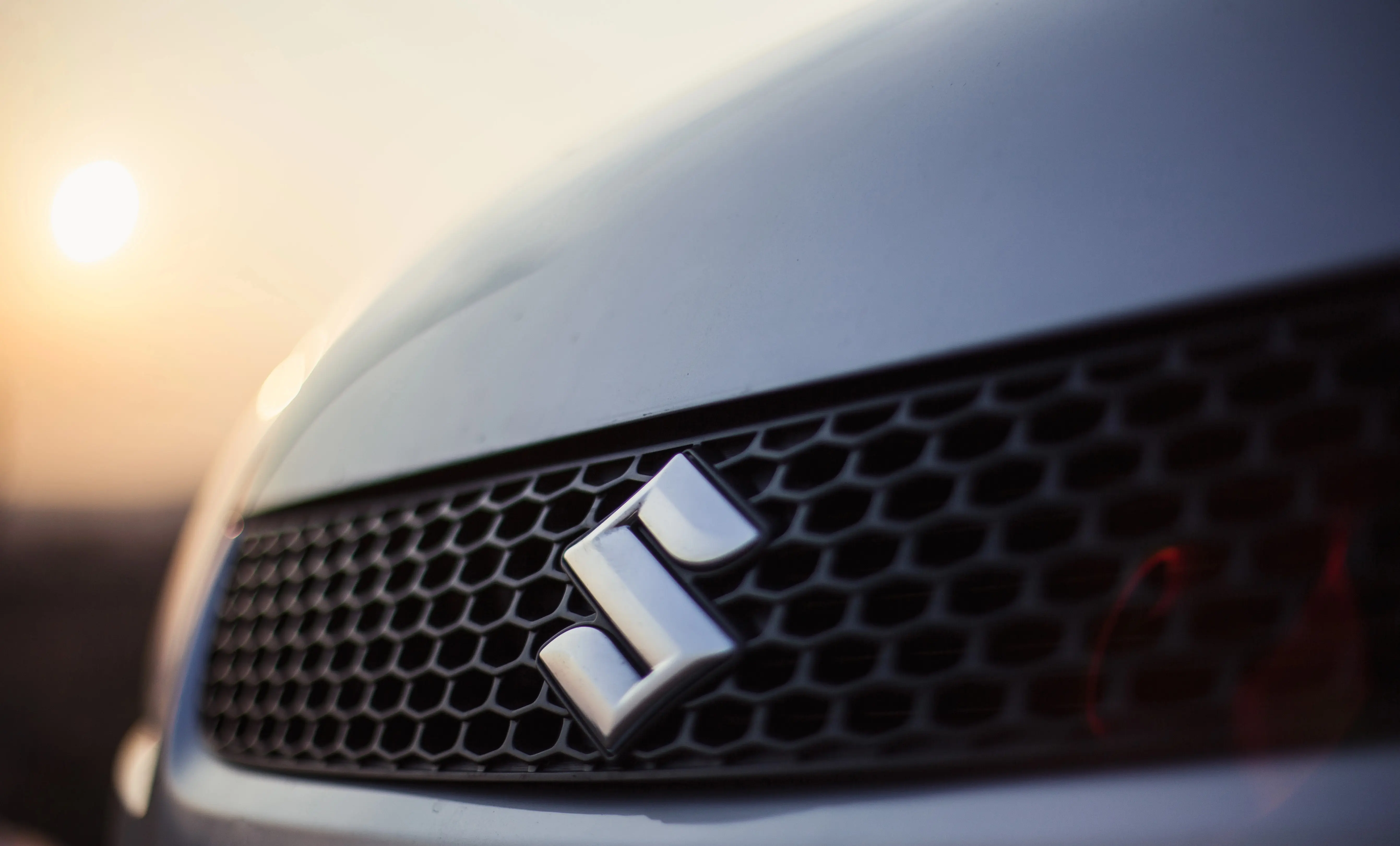The most common Suzuki problems include faulty timing chain tensioners, CVT failures, engine issues, and premature headlight failure.
QUICK LOOK
- Suzukis may have issues with the timing chain, headlights, brakes, and transmission.
- Suzukis have average reliability ratings, though some models rate higher than others.
- Average annual maintenance for a Suzuki is usually a bit over $500, which is less than the average car.
What are the most common Suzuki problems?
A few key problems appear again and again in Suzukis. The most common problems reported by Suzuki drivers include:
- CVT failures
- Inflated MPG numbers
- Engine overheating
- Burnt-out head bulbs
- Having the check engine warning light continuously on due to poor fuel quality
- Faulty timing chain or drive belt tensioner
Though these problems may befall any Suzuki model, some models are more problem-prone than others.
Check out the table below for an overview of the common problems for some of the most unreliable Suzuki models:
| Model | Starting price | J.D. Power reliability rating | Most common problems | Years to avoid |
|---|---|---|---|---|
| XL7 | $26,500 | N/A | Brake problems, faulty timing chain, recalls, safety issues, excessive road noise, poor-quality materials on the interior | 2009, 2008, 2007, 2004, 2003 |
| Forenza | $15,149 | 78/100 | Failed air/fuel sensor, faulty high/low-beam headlamps, lack of power, low fuel pressure, leaky fuel injector | 2008, 2007, 2006, 2005, 2004 |
| Grand Vitara | $20,799 | N/A | Burnt-out headlights, Failed A/C condenser fan, timing chain oil leaks, faulty air bag sensor | 2010, 2008, 2007, 2006, 2002 |
| SX4 | $16,500 | N/A | Transmission failures, leaky rear axle seals, accelerator pedal sticks, 5th gear malfunction, cracked engine block, faulty air bag sensors | 2007, 2008, 2009, 2010, 2013 |
| Aerio | $18,000 | 79/100 | Tires wear out quickly, worn out brakes | 2007, 2006, 2004, 2002 |
Most common Suzuki XL7 problems
Average annual repair cost: $539
CarComplaints.com complaints: 79
Released in 2007, the Suzuki XL7 strove to do the impossible by combining the family-friendly flexibility of the minivan with the horsepower and torque of a sportier SUV. But what went wrong?
Safety issues with the windshields have led to numerous recalls over its tenure. Constructed out of the incorrect materials, the windshields for these models were highly prone to fall out of place during a crash.
Other problems range from faulty brake systems and broken timing chains to excessive road noise and low-quality interior materials. As repair after repair stacks up, the average annual repair cost for the XL7 totals $500+.
If you have any concerns about your brake safety, get an inspection ASAP.
Most common Suzuki Forenza problems
Average annual repair cost: $455
CarComplaints.com complaints: 73
If you’re driving a Forenza, your fuel system may be the cause of many headaches. Problems with the fuel system range from failed air/fuel sensors to hard starts caused by low fuel pressure and even the likelihood of a leaky fuel injector.
Another common Suzuki Forenza problem is a lack of power paired with the Check Engine Light. Typically, the root of this issue is a broken throttle actuator, which will need to be replaced entirely to remedy the problem.
If you have a 2004-2006 model, know that the low beam and daytime running lights have been the cause of a few recalls.
This problem is seen in other car years as well—so don’t be surprised if your Forenza headlights stop working (this is typically caused by a broken connection at the headlight switch).
Most common Suzuki Grand Vitara problems
Average annual repair cost: $478
CarComplaints.com complaints: 57
The Grand Vitara is no stranger to frequently burnt-out headlights—though unlike its cousin models, the Grand Vitara has not had any recalls for this specific problem.
The most common situation is prematurely burnt-out low beam headlights, often caused by a faulty vehicle electrical system.
The A/C condenser fan is a hot problem as well. Failure in this system prevents the car’s air conditioning system from being able to create cool air, which no one wants come summertime!
Grand Vitara drivers may also have to deal with serious issues such as oil leaks around the timing chain gasket or a faulty airbag sensor.
Most common Suzuki SX4 problems
Average annual repair cost: $499
CarComplaints.com complaints: 27
Though the SX4 has relatively few complaints on CarComplaints.com, the common SX4 problems are just as serious as they are costly.
SX4 owners have reported transmission system failures, including issues with the fifth gear not working—this problem alone will set you back nearly $2,000 to repair.
You may also experience a sticking accelerator pedal, cracked engine block, leaky seals on the rear axles, or issues with the airbag sensor lights. If your gas pedal is stuck, you’re either going nowhere fast or going fast forever!
Most common Suzuki Aerio problems
Average annual repair cost: $317
CarComplaints.com complaints: 17
The Suzuki Aerio’s most common issues can be found in the tires and braking system.
The rear tires tend to wear out prematurely, although uneven tire wear can sometimes be remedied by rotating the tires.
The other common problem is premature wear on the brake pads, especially if you’re an aggressive driver or fail to check or add the brake fluid on time.
Are Suzuki cars reliable?
Compared to other manufacturers, Suzuki cars have about average reliability.
Expect your Suzuki to visit the repair shop no more than average—so, about 0.4 times per year for unplanned maintenance. On top of that, only about 12% of those visits are considered severe, which is similar to the rate for the average vehicle.
The average annual cost of maintenance for a Suzuki is a little over $500, but note that this number depends on your specific model.
Let’s take a closer look at the reliability ratings for several different Suzuki models.
Suzuki Reno (budget option):
- Reliability: 3.5/5 (average)
- Annual maintenance cost: $358 (average)
- Repair frequency: 0.4 times per year
Suzuki Equator (mid-range option):
- Reliability: 4.5/5 (average)
- Annual maintenance cost: $557
- Repair frequency: 0.4 times per year
Suzuki SX4 (splurge option):
- Reliability: 4.4/5 (average)
- Annual maintenance cost: $685
- Repair frequency: 0.4 times per year
Between numerous recalls, safety issues, and frequent headlight failures, among other problems, Suzukis do have some consistent reliability issues compared to their counterparts.
But that doesn’t mean that you should avoid all Suzukis!
Here’s a more detailed glimpse at the least reliable (think: the model that should be avoided) and the most reliable members of the Suzuki family.
The least reliable Suzuki model: 2008 Suzuki XL7
Most common problem: Faulty timing chain tensioner
Though this model hit the market ready to offer a competitive 5-seat car with top-notch horsepower, spaciousness, and a budget-friendly price, the 2008 XL7 racked up complaints about the timing chain tensioner and leaky front axles.
With 73 NHTSA complaints plus 47 on CarComplaints.com, it’s clear to see that the 2008 Suzuki XL7 is the manufacturer’s least reliable model.
The most reliable Suzuki model: Suzuki Jimny
Most common problem: Engine issues
The Suzuki Jimny is a highly reliable SUV, with a Reliability Index of 71. What’s more, no complaints have been logged on CarComplaints.com for the Suzuki Jimny.
Starting at $26,990, the Jimny is one of Suzuki’s more expensive options. Nonetheless, know that this reliable model also deals with problems ranging from faulty wheel hub heads to poor rust prevention treatment, gearbox failures, worn-out velocity joints, and engine issues.
Perform basic maintenance on your Suzuki to help prevent problems
Try to follow a basic car maintenance schedule to keep your Suzuki running as smoothly as possible. The benefits of regular maintenance include:
- Keep it driving at its optimum level
- Remain safe while driving
- Maintain your Suzuki’s value
- Pre-empting any costly issues that may crop up in the future
Although you should always consult your owner’s manual, here’s a quick guide to basic maintenance tasks and service intervals for a standard Suzuki.
| Mileage | Service | Average cost |
|---|---|---|
| Every 7,500 miles | Minor maintenance service: engine oil and oil filter replacement, tire rotation, fluid leak inspection, | $120 to $133 |
| Every 15,000 miles | Standard maintenance service: oil change, tire rotation, replace engine filter, cabin air filter; potential brake pad replacement; service any recalls | $211 to $243 |
| Every 22,500 miles | visual inspection of belts, hoses, and brakes | $120 to $133 |
| Every 30,000 miles | replace brake fluid, engine coolant, and transmission fluid; replace spark plugs, air filter, and fuel filter; potential tire replacement | $342 to $400 |
| Every 42,000 miles | oil change, tire rotation, visual inspection | $91 to $96 |
| Every 60,000 miles | potential brake pad replacement; oil change, tire rotation, safety check | $120 to $133 |
Suzuki oil changes
- When: Usually needed every 5,000 to 7,500 miles
- Cost: $116 to $128
- Why: Removes excess dirt from engine and keeps it running smoothly
- DIY?: Yes—if you have the right tools and the knowledge
Suzuki tire replacement
- When: NHTSA recommends replacing tires every six years, no matter how many miles driven
- Cost: $300 to $600
- Why: Worn tires can be dangerous in wet weather as they don’t handle well
- DIY?: No—let a professional replace your tires to ensure they are balanced for even wear and a smooth drive
Suzuki engine replacement
- When: If your engine block is cracked or damaged in a collision, or it simply has run its course from heavy usage
- Cost: $3,000 to $6,000
- Why: A functioning engine is vital to ensure your Suzuki runs well
- DIY?: No—take the car to a certified mechanic for an engine replacement
Suzuki windshield replacement
- When: If your windshield is cracked, with the fissure going halfway into the windshield, or extending to the outer edge of the windshield
- Cost: ~$350
- Why: Driving with a severely cracked windshield can impede your vision and make driving dangerous
- DIY?: No—installing a new windshield yourself is not advised
Suzuki paint job
- When: If the car’s paint is discolored or is visibly peeling
- Cost: $1,500 to $4,000
- Why: Paint maintains a vehicle’s structural integrity, prevents corrosion, and ups the resale value
- DIY?: Maybe—but a professional-looking paint job requires specialized tools and lots of time and patience
Suzuki transmission
- When: Is it common for transmissions to fail between 80,000 and 150,000 miles
- Cost: $200 to $5000
- Why: A transmission distributes power to a car’s wheels depending on its speed
- DIY?: No—replacing a transmission can be a difficult task, so take your Suzuki to a professional to replace its transmission
Suzuki timing chain
- When: Is it common for timing chains to be replaced between 80,000 and 120,000 miles
- Cost: $200 to $5000
- Why: A timing chain is what controls the pistons and valves that operate within an engine’s cylinders
- DIY?: No—replacing a transmission can be a difficult task, so take your Suzuki to a professional to replace its transmission

Bonnie Stinson is an insurance writer with 8+ years of experience as a content writer. They specialize in making complex topics like insurance and technology easy to understand. Bonnie has written over 1,300 articles to help people become confident car owners, from how to choose the right car and build a car insurance policy to dealing with stressful situations like car accidents and unexpected repairs. Before joining Jerry’s editorial team, Bonnie worked as a digital media strategist and user experience researcher, producing content for Furnishr, STACKEDD Magazine, InfinityCore Health, and the global non-profit Giraffe Heroes.

Bellina Gaskey is Jerry’s content editor and head of video. The Motor City native specializes in creating articles and video content car owners can use to reduce costs, master repair skills, and learn more about all things car. Bellina has edited nearly 2,000 articles on car ownership and home insurance topics, and scripted and appeared in over 350 videos on car ownership, insurance tips, and automotive news racking up more than three million views. Prior to joining Jerry, Bellina worked as a media consultant for a legal e-discovery startup and as a research assistant at the University of Michigan, where she completed a degree in Classical Languages and Literature.








